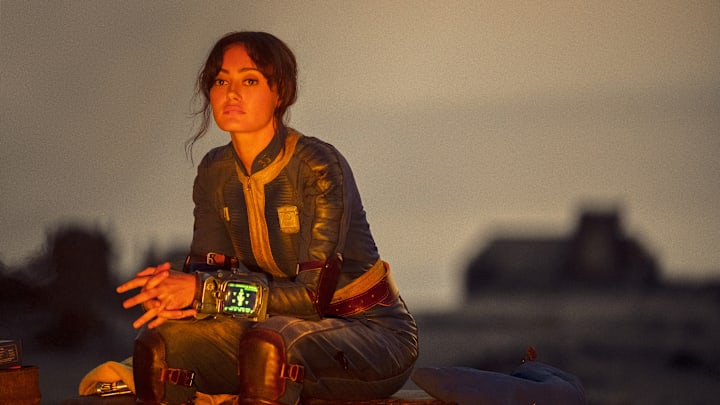The other week, Amazon dropped all eight episodes of Fallout, a new TV show based on the long-running video game series of the same name. Everything folks remember from the games is here: the post-apocalyptic landscape, the gallows humor, the 1940s aesthetic, the mutant man-eating cockroaches...showrunner Jonathan Nolan did an excellent job of translating the games to the small screen in a way that will please diehard fans but remain approachable enough for newcomers to enjoy. We loved the show and can't wait for a second season (hint hint, Amazon).
People haven't enjoyed a video game adaptation this much since the first season of The Last of Us, which aired on HBO early in 2023. Again, that show did a great job of translating the tone of The Last of Us games — bleak, thoughtful, grounded — to the small screen in a way that had everyone singing its praises. (Actually, although they're very different in tone, The Last of Us and Fallout have a few things in common, since they're both post-apocalyptic epics. Why do we love stories set after the end of the world so much? A question for another time.)
Anyway, pretty soon after Fallout came out, the comparisons began. Take this piece in Esquire, where writer Henry Wong reasons that Fallout "beats The Last of Us at its own game" because Fallout, unlike The Last of Us, embraces the inherent insubstantiality of the video game medium, where "generally...stories are second to gameplay." Wong writes that The Last of Us "tricked many into thinking it was somehow prestige television," implying that no show based on a video game could actually come by that label honestly, adapted as they are from a medium that is inherently less serious than, say, books.
I agree with Wong that Fallout is more self-aware than The Last of Us — more ridiculous, less self-serious — but I disagree that this is because, as Wong writes, Fallout treats its source material "not as an insecurity but a badge of pride." I think the Fallout TV show is this way because the Fallout video game series is this way, and I think The Last of Us TV show is grim and dark and deadly serious because that's how The Last of Us games are. Although video game adaptations have come a long way since the days when Bob Hoskins and John Leguizamo were confusing audiences everywhere as Mario and Luigi in the 1993 Super Mario Bros. movie, clearly the notion that no video game adaptation could ever equal the best films and TV shows for depth and complexity is still around.
I see this position as snobbish and self-fulfilling. When a show like Fallout is silly and fun, Wong sees it as embracing its frivilous roots. When a show like The Last of Us earnestly tries to tell a human story in a serious way, it has merely "tricked" people into thinking it's prestigious. In this framework, I don't think there's room for a video game adaptation that's both faithful and good.
This elitist position does have the weight of evidence behind it, to be fair. The history of video game adaptations is well known, and there are a lot of clunkers in there. That 1993 Mario movie set the tone for a few decades of dire movies, from Alone in the Dark to Doom to Prince of Persia to Assassin's Creed. But I think it was inevitable that the adaptations would eventually start to improve. For one thing, a new generation of Hollywood professionals who actually grew up playing and enjoying video games came into power; it's way easier to make a good movie or show when you treat the source material as something worth adapting, rather than purely as a name brand to be exploited. But also, video games make an enormous amount of money, more and more every year. Even those Hollywood executives who don't take them seriously can't afford to leave that money on the table. If a better product means better box office, they'll make one.
Finally, as the medium of video games itself expanded, developers began to make increasingly challenging games that were more attractive to filmmakers. Wong is correct that video games are a medium where stories are generally "second to gameplay," but that's not true in every case, nor does it follow that a story can't be compelling or powerful as a movie or TV show even if it's designed to be played as a game. Translating a book to the screen requires a massive shift in format, but adaptations of books are not treated as inherently less serious than movies built from the ground up for the screen, I suspect because they've been happening for so long that everyone has gotten used to them.
I think that's what will eventually happen to movies and TV shows based on games, which are set to multiply in the coming years. From huge names like The Legend of Zelda to little-known indie darlings like Dredge, video games are getting adapted by the score. I expect most of them to be commercial affairs intended to entertain first and foremost, a worthy goal. But I also know how deep the video game medium goes, and I'm sure some of these upcoming movies and shows will become modern classics that people will take into their hearts. In time, I think that will drive away the perception that games are inherently flimsy source material. And then they'll they start making movies based on holo-TikToks or whatever we get in the future and this whole cycle will start over again.
To stay up to date on everything fantasy, science fiction, and WiC, follow our all-encompassing Facebook page and Twitter account, sign up for our exclusive newsletter and check out our YouTube channel.
